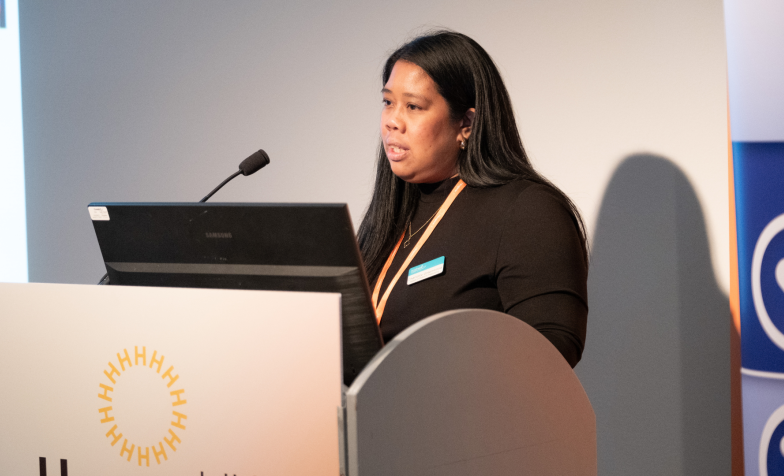
Top tips: how to write a conference abstract

Many conferences, including Hospice UK's National Conference, are extremely competitive when it comes to selecting papers and presentations.
Make sure you stand the best chance of being selected by following our top tips on how to write a conference abstract.
Title
Top tips: how to write an abstract
- 1. Be concise and stick to the word limit
- 2. Be clear
- 3. Keep it anonymous
- 4. Be original
- 5. Write a captivating and clear title
- 6. Check if references are required
- 7. Correctly structure your abstract
- 8. Include enough detail under each heading
- 9. Compare your work to sample abstracts
- 10. Make use of a mentoring scheme
- 11. Submit your work on time
1. Be concise and stick to the word limit
The first tip on how to write an abstract is simple: the text of your abstract should not exceed the word limit. For the Hospice UK National Conference this is 300 words, but other conferences could be lower. Make sure you're able to convey your work concisely.
This also helps readability for the reviewers, who will be wading through many abstracts. You'll want to help yours stand out by being easy to read.
2. Be clear
It's important to use plain English, and if you use abbreviations then be sure to explain them.
3. Keep it anonymous
In order to give everyone an equal opportunity for their abstract to be selected, the review process for abstracts is often kept anonymous. This means reviewers are not told the names or workplace of people whose abstracts they review.
In these cases, do not mention the names of the author(s) or organisation(s) involved in the text of your abstract or its title.
4. Be original
This may seem obvious, but if your work has been presented or published elsewhere, then usually abstracts about it cannot be considered.
5. Write a captivating and clear title
The title is one of the most important parts of your abstract. Make sure you attract readers’ attention with a title that is concise, informative and unambiguous.
6. Check if references are required
Many conferences encourage authors to provide a list of references that underpin their abstract - ours included! This can help lend credibility and context to your work.
However, some conference organisers do not require the inclusion of references.
7. Correctly structure your abstract
If your abstract doesn't meet the assessment criteria, you may find that it gets marked down. It's important to structure your abstract using the same headings which the reviewers will use to assess your work.
These are usually available on the website of the organisation hosting the conference.
8. Include enough detail under each heading
Sometimes, an abstract can be let down by not filling in all the sections adequately.
You should give enough detail under each heading so that reviewers can allocate scores for your abstract.
In the Hospice UK abstract review process, all sections are scored separately. This means all sections should have content (except for the Conclusion section for abstracts relating to work in progress).
9. Compare your work to sample abstracts
It's handy to look at mock sample abstracts to understand why work may or may not be accepted for presentation.
Here are some examples of sample abstracts for the Hospice UK National Conference:
10. Make use of a mentoring scheme
If you're less experienced in writing for publication, you might consider making use of a mentoring scheme - if available.
Each year, Hospice UK run a mentoring scheme, which can be helpful for people who are new to writing abstracts. Our panel of volunteer mentors can share their knowledge and experience and help you to increase the chance of your work being accepted for presentation at our National Conference.
Evaluations of this scheme show that all of the authors who have taken part benefitted from their mentorship.
11. Submit your work on time
If you don't submit your abstract on time - no matter how good it is - it will not be accepted!
The deadline for submitting an abstract for Hospice UK's National Conference is midday on 13 May 2025.
Once you have submitted your abstract, you will not be able to edit the content - so it's important to get it right.





